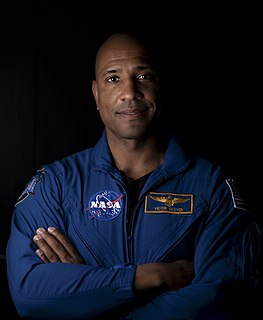A Quote by Debra Fischer
I hope that vigorous space exploration continues and that humankind will have a space station that resides between Earth and the moon. Outside the gravitational field of Earth, we could launch robotic spacecraft to other destinations in our solar system.
Related Quotes
Going into orbit around Earth - where the space station is today, and where the space shuttles and John Glenn and all those folks go-that's three-eighths of an inch above a schoolroom globe, just FYI. That's not very far from Earth. Yes, you are off Earth, but you're not really going anywhere yet. The moon was the only real destination.
We will eventually build space science labs and hotels, prodding the capability for missions beyond the orbit of the Earth. Our space-hotel guests will be able to take breath-taking excursions, flying a couple of hundred feet above the Moon's surface in small two-man spaceships. In time, we will launch missions to Mars and beyond.
The Fuse is a solar energy station in orbit 22,000 miles above the earth. But it's more than just a big solar panel array. The Fuse is also home to Midway City, a technically illegal settlement that grew out of a bunch of engineers who decided they'd rather make a new life in space than return home to earth.
The frontier in space, embodied in the space colony, is one in which the interactions between humans and their environment is so much more sensitive and interactive and less tolerant of irresponsibility than it is on the whole surface of the Earth. We are going to learn how to relate to the Earth and our own natural environment here by looking seriously at space colony ecologies.


































